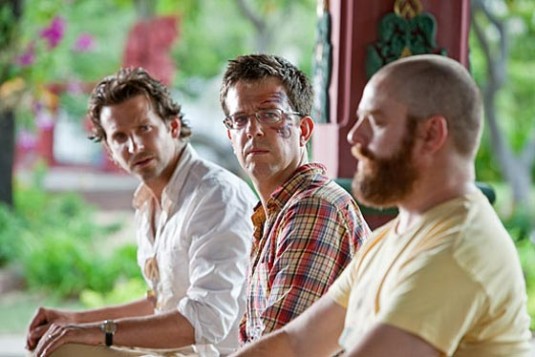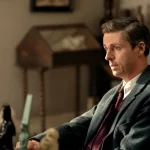The Adventures Continue, by Tyler Smith
Summer movie season has officially started. Which, of course, means that, for those of us that spend a lot of time on the internet talking about film, it’s that special time of year to complain about movie sequels. Of course, there are some movies that automatically come with the expectation of a sequel. These films are usually of the action genre, which features protagonists whose lives are such that it is widely accepted that they can and will get involved in one adventure after another. Superheroes, cops, criminals, whatever. People that are in some way exceptional or exotic. To see a continuation of their story just makes sense to us.
Every once in a while, though, a film will come out that catches us by surprise. Perhaps it has at its core a new concept. Or maybe its story is nothing new, but its execution is so fresh and novel that word starts to get around that this is a film to see. Whatever the reason, there seems to be one or two movies a year that seems to capture the audience’s attention, making them unexpected box office hits. This, in turn, captures the studio’s attention. They see an opportunity to wring even more money out of this pleasant surprise.
And so we wind up with a sequel where there is no reasonable artistic expectation for one. A prime example of this is The Hangover Part II, in which the characters from the first film find themselves in a similar situation, have similar reactions, and resolve the situation in a similar way. The one difference, it would appear, is that they are in another country. This change of scenery is nothing new for sequels- just look at Home Alone 2: Lost in New York– but it is indicative of a certain creative bankruptcy. When a sequel is produced solely for the purposes of making the studio money, there will be nothing new; it will be the same old shtick, only taken a little further.
This year’s unexpected box office success is Paul Fieg’s Bridesmaids, a raunchy comedy that has performed remarkably well, primarily among female moviegoers. Once everybody took notice of this very entertaining film, it was only a matter of time before there were whispers of a second film. In the case of Bridesmaids, there was an announcement by the second week of release. Undoubtedly, the sequel will probably feature the same characters doing the same things, only with a slight cosmetic difference. And everything that made the original film enjoyable will have been co-opted by the studio, with clever asides becoming catch phrases and everything seeming stale and familiar.
Don’t get me wrong; I don’t instinctively have a problem with sequels. In many cases, sequels can provide an audience with a further appreciation of characters and stories that were set up in the first film. Movies like The Dark Knight, Iron Man 2, and The Bourne Supremacy do a good job of taking a well-established character and allowing him to further explore his situation. And, as he explores, we find ourselves discovering new and fascinating things about this character. A character like Tony Stark- so charming and carefree in the original Iron Man– is allowed to contemplate the true logistical and emotional ramifications of being a world famous superhero in Iron Man 2. His personal journey deepens and he comes to grips with his moral responsibilities Responsibilities known all too well by Bruce Wayne and Jason Bourne, two men whose goals are very simple, but soon require more of them than they ever thought they would have to give.
Of course, what I’m talking about here is Character. Sequels only work when they flow out of a character. Somebody made a bold series of choices in the first film and now they have to follow through. To do so will stretch them and force them to grow, and in that growing they become more fascinating to watch. Which is why we are invested in their story.
The characters from The Hangover, however, are not extraordinary men. The reason the first film worked is precisely because these were just regular guys caught up in an unusual situation. Their reactions to that situation drove the comedy along, but we must not forget that it wasn’t what drove the story. The situation was why we were watching the movie, not the characters. As such, they did not really learn anything groundbreaking in the first film that required a another movie. Instead, the second film is about men that have learned so little that they find themselves in the exact same situation. The characters’ inability to grow can be pretty funny, but two movies is probably a bit too much time to spend with such people. After a while, we find ourselves growing tired of their childishness.
In life, if we were friends with Bruce Wayne or Tony Stark, we would sympathize with their situation. We would want to do anything in our power to help them. We want them to succeed.
On the other hand, we probably do know guys like Phil, Stu, and Alan. Guys that never learn from their mistakes; guys that never grow up. And chances are we stopped taking their phone calls a long time ago.
I don’t mean to come down hard on The Hangover, or even sequels, in general. If this were an organic decision made by the director and stars, in which they could develop the characters by putting them in a different type of comedic situation, then I’d be much more enthusiastic about the film. But the fact that it’s the same exact guys doing the same exact thing in the same exact way makes me frustrated. The whole thing wreaks of creative dry rot. It’s got the smell of “studio decision” all over it. And, frankly, that’s a stench that I find myself having less and less tolerance for.































Great post, Tyler. You’ve made me wonder something, with the whole ‘character vs. situation’ opposition:
Is there a series of films where in the first movie the situation *seemed* to be the star, only to later have a second movie arrive in which the hero showed he could carry a film with aspects of his character that weren’t necessarily revealed in the first movie? Like a series where, after a first film where all intrigue seemed rooted and locked into the situation, the series was able to have us root for and follow his character in the second movie into a completely *different* situation and premise.
I’m sure I haven’t seen as many films as other people reading this, but I’ll think on some examples. Any thoughts?
The first that jumps to mind is “Pirates of the Caribbean.” I really enjoyed the first film, as many did. It was fun and committed to its premise. But the real standout for me, as well as many others, was Jack Sparrow. That character, played that way, was a surprise. We wouldn’t have expected such an unusual character. Johnny Depp’s performance of Sparrow is what I credit with the film’s success. The idea of a sequel was inevitable.
Unfortunately, the studio displayed a surprising lack of awareness. While Sparrow was certainly front and center, the studio seemed to be under the impression that Sparrow was only one element of a successful film, rather than the key element. As such, when it came time to make “Dead Man’s Chest,” they brought back absolutely every character and almost every memorable line, thinking that those were what made it good. But, really, did anybody go to the “Pirates” sequel because of Orlando Bloom?
The studio should have recognized that we really just wanted to see Jack Sparrow getting in different adventures. The other characters could be shed (as they eventually were in the latest film) and Sparrow would have been allowed to blossom as a character.
Sadly, the studio made the same mistake that I talk about in this blog. They try as hard as they can to recreate the movie as completely as possible, rather than try to further develop a fascinating character.